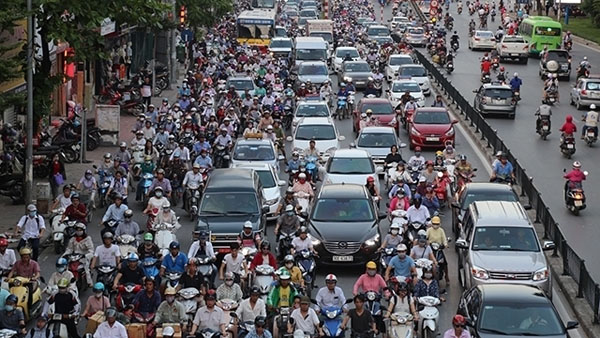


|
In recent years, Hanoi has been faced with serious traffic congestion due to growth in the number of motor vehicles. The city
says it will prioritise resources for developing a public transport network
that meets 30-35% of travel demand by 2020 and 50-55% by 2030.
However,
many worry that the network will not be extensive enough to meet travel
demand once the motorbike ban is put into effect as public buses, currently
the sole mode of public transport in Hanoi, only meet 15% of city residents’
demand.
In the
meantime, the two urban railway lines that are currently under construction
are far behind their completion schedules.
After
many delays, Line 2A between Cat Linh and Ha Dong is scheduled to be
officially put into service in the second quarter of 2018 while Line 3
between Nhon and Hanoi Railway Station will not be completed until 2021.
Hanoi
also launched a BRT service at the end of 2016 but it has failed to attract
users, many of whom say the route is poorly designed and requires commuters
to transfer to other lines to reach their intended destination.
In recent
years, Hanoi has been faced with serious traffic congestion due to growth in
the number of motor vehicles, with cars increasing 10% annually, far
exceeding traffic infrastructure development.
It is
estimated that by 2020, with the current rate of vehicle growth Hanoi will
have nearly one million cars and more than 8 million motorbikes, however, the
number of cars could be even higher with significant cuts expected to be made
to import taxes from 2018, further straining Hanoi’s streets.
|